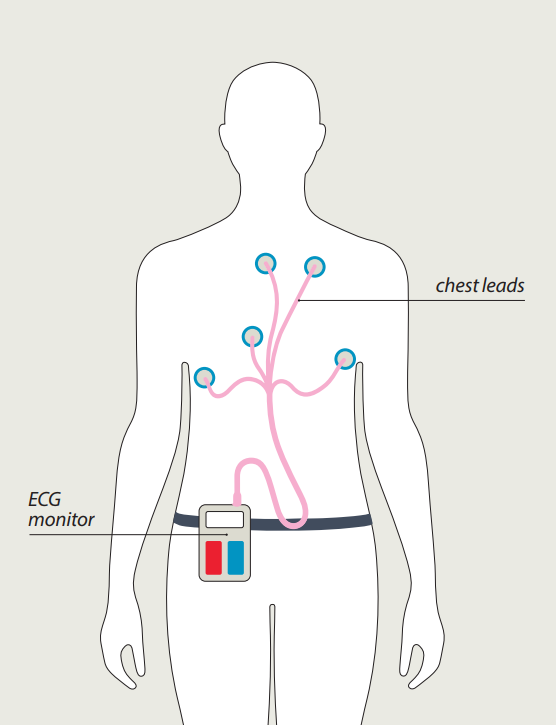Living with Atrial Fibrillation
- 0About this program
- 1Welcome to Living with Atrial Fibrillation
- 2What is Atrial Fibrillation or `AF`?
- 3Causes, symptoms and tests
- 4Understanding the risks
- 5Treatments for Atrial fibrillation (AF)
- 6Supporting you through treatments
- 7Living well with Atrial Fibrillation
- 8Looking after yourself with AF
- 9Changes in your condition
- 10Continuing support
- 0About this program
- 1Welcome to Living with Atrial Fibrillation
- 2What is Atrial Fibrillation or `AF`?
- 3Causes, symptoms and tests
- 4Understanding the risks
- 5Treatments for Atrial fibrillation (AF)
- 6Supporting you through treatments
- 7Living well with Atrial Fibrillation
- 8Looking after yourself with AF
- 9Changes in your condition
- 10Continuing support
Content on HealthUnlocked does not replace the relationship between you and doctors or other healthcare professionals nor the advice you receive from them.
Never delay seeking advice or dialling emergency services because of something that you have read on HealthUnlocked.
Causes, symptoms and tests

Here we’ll explain common causes for Atrial Fibrillation (AF), symptoms you may experience and tests that your doctor might use to diagnose the condition and monitor your health.
What causes AF?
The exact causes of AF aren’t fully understood, but we know that there are some people more at risk of developing it.
AF becomes more common as people get older, especially for people aged over 65. Common causes include: high blood pressure, heart valve disease or a history of heavy drinking.
Other causes include:
- coronary heart disease
- previous heart or lung surgery
- myocarditis(inflammation of the heart muscle)
- cardiomyopathies (diseases of the heart muscle)
- an overactive thyroid gland,
- heart failure
- lung infections like pneumonia
- being overweight (especially if you also have sleep apnoea).
AF specialist Professor Kirchhof talks about the causes of AF in more detail. Read the interview about AF causes.
AF symptoms explained
Not everybody experiences symptoms of AF. However, you could feel:
- palpitations (a feeling of thumping or fluttering in your chest)
- tiredness
- shortness of breath
- dizziness or feeling faint.
It can help to keep a diary of symptoms so that you can explain any changes or concerns you have with your healthcare professional. They may be able to help you with treatments to reduce your symptoms.
How to check your pulse
Learning how to check your pulse is a useful skill if you’re new to living with AF. If your AF isn’t constant, your pulse can let you know when you’re experiencing episodes of AF.
How your diagnosis might make you feel
Getting a new diagnosis can be overwhelming. It’s likely you’ll have a lot of questions and some worries too. It can be helpful to keep track of these so that when you speak to your doctor or nurse, you can run through them and you won’t forget anything. You could even write them in the back of our Atrial Fibrillation quick guide.
The good thing about getting a diagnosis is that you can start taking action to manage your condition and improve your quality of life.
Your AF treatment will aim to do two things.
- It will reduce your risk of having a stroke.
- It will control your heart rate and rhythm, which should help to control any symptoms you’re having.
Treatments for AF vary depending on several different factors, including:
- the type of AF you have
- how long you’ve had AF
- how your symptoms affect your quality of life
- the treatments you’ve already tried
- any other heart conditions you may have your age.
Your ECG and what it means
When you were diagnosed with AF, it’s likely you had an electrocardiogram (ECG) test. An ECG is used to detect and diagnose problems with your heart.
During the test, sticky patches are put on your arms, legs and chest, and these patches are connected to an ECG recording machine. The machine picks up the electrical signals that make your heartbeat. It usually takes about 5 minutes and it doesn’t hurt.
Your doctor might suggest two other types of ECG too. These are:
Exercise ECG or ‘stress test’ – this is an ECG carried out while you exercise on a treadmill or exercise bike. It monitors how your heart works while you’re active.
Holter monitoring – this monitors your heart for 1-7 days. If your AF comes and goes, you may have this test so your healthcare professional can get a full picture of your symptoms.
 Image source: HIS AF booklet (page 17)
Image source: HIS AF booklet (page 17)
About cardiac event monitors
If your AF symptoms come and go, you may be asked to use a cardiac event recorder. This can record your heart’s activity over time. There are two types of cardiac event recorder:
A portable cardiac event recorder – this is a small device you hold to your chest when you experience symptoms.
An implantable loop recorder (ILR) – this is put under the skin on your chest as part of a surgical procedure under local anaesthetic. This can monitor your heart for up to 3 years to help find out more about your condition.
Next: What are the risks of AF?
What we will cover next:
- What AF means for your long-term health, particularly your stroke risk.
- How you can reduce your stroke risk.
- Your downloadable stroke guide.
Content on HealthUnlocked does not replace the relationship between you and doctors or other healthcare professionals nor the advice you receive from them.
Never delay seeking advice or dialling emergency services because of something that you have read on HealthUnlocked.